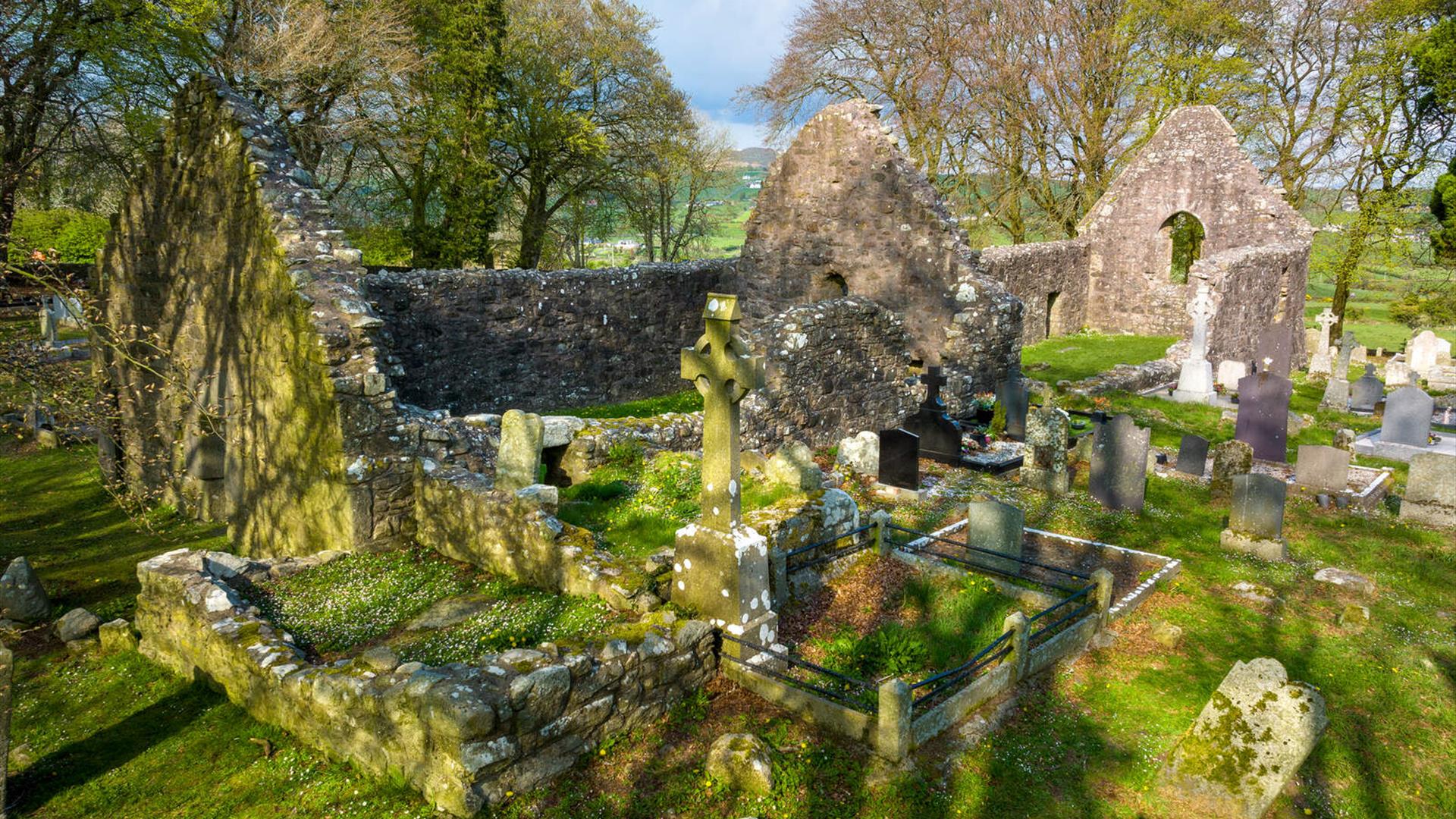Book Tickets Online
About
This site at the foot of Slieve Gullion contains back to back churches; the West Church dates from 11th Century and the East Church from 15th Century. It is also the site of an early monastery founded by St. Moninna in 517 as one of the most important monasteries for nuns in Medieval Ireland.
Moninna's real name was Darerca and it would appear that she came from the Donaghmore area of County Down, between Newry and Banbridge. As there were no converts in the area, Monnina went to the west of Ireland to join St. Ibar. When Ibar moved to Wexford, Monnina followed him, but stopped off with St. Brigid in Kildare.
This may have been the turning point in her life. Monnina travelled to Faughart in County Louth, Brigid’s birthplace, where she lived for some time. She then moved a short distance to Killevey, where she founded her main monastery, Cill Sleibhe Cuilinn, The Church of Slieve Gullion or Killevey, in this mountainous country of south Armagh.
Although plundered by the Vikings in 923, monastic life continued and the site was occupied by the Augustinian Nuns until 1542. The church ruins now on the site comprise two distinct churches joined lengthwise. The smaller and older is characterised by a most impressive, low lintel doorway built of three massive shaped granite stones. The more recent building, an Augustinian Convent, has a very impressive arched window with angel carvings still visible on its outside. The large tree-lined graveyard is still in use today.
Closeby is a large granite slab which is reputed to mark Monnina’s grave, with a holy well further up the hill which is still visited by pilgrims on her feast day, July 6th.














